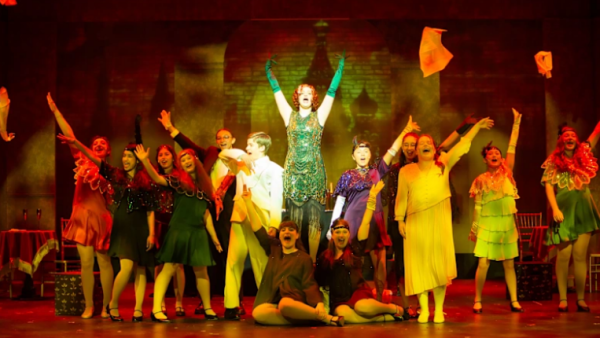Class Spotlight: Racism, Classism, Sexism
We don’t have time to cover that in class. It seems that this sentence is often perfectly timed with the mentioning of historical and modern examples of racism, classism, and sexism. These subjects hold so much significance in respect to the inequities that our world deals with. To that, global teacher and RCS co-teacher Mrs. Duffy said, “now we have time.”
One of Horace Greeley’s newest courses, Racism, Classism, and Sexism (RCS), is a semester-long class that will be co-taught by teachers in the English and Social Studies departments. True to its name, the course aims to dive into both centuries-old and newer societal problems that affect virtually everyone, regardless of one’s own identity.
While this course is new to Greeley, other local high schools have offered the same course to students in past years, such as Ossining High School and Carmel High School. Greeley teachers and administrators were able to sit in on Ossining’s classes and collaborate with the teachers to build the course, which was created by a team of History teachers, English teachers, administrators, and staff developers. The curriculum took one and a half years to solidify, a process that involved multiple planning and revision cycles. Former English teacher and co-teacher of RCS Mr. Valentin noted how “We’ve done topics on these [topics previously], but this is our deep dive.”
To better understand each other’s classes and teaching style, the RCS teachers would partake in “hostile takeovers.” The “hostile takeover,” as Mrs. Duffy and Mr. Valentin fondly referred to it as, was when one teacher would drop by the other’s class in an attempt to allow the teachers to get to know each other better. Since the class was going to be taught by more than one teacher, they wanted to make sure they could collaborate in a way that enhanced both of their teaching styles to enrich the RCS experience for students.
Although the course was originally known as SUNY Racism, Classism, and Sexism, the class has not yet gotten SUNY approval. Teachers have their fingers crossed for this year, though the approval may not happen for another couple of years. However, this has not dissuaded students from signing up. This fall semester, the program has two sections and a total of 63 junior and senior students. RCS currently counts as an English or Social Studies elective and is only offered to upperclassmen.
An important part of the RCS course is discussion, as the course involves courageous conversations. This term, “courageous conversation,” was coined by author Glenn Singleton, who believes that conversation about race and racial inequities is necessary for forward societal movement. A crucial part of these courageous conversations is being uncomfortable. The idea of being uncomfortable doesn’t mean putting discussion participants into dangerous positions, but instead encouraging participants to step out of their own perspectives and try to view someone else’s to expand their knowledge and viewpoints. Senior Sara L. shared that she decided to sign up for RCS because “This kind of class is definitely out of my comfort zone, and I wanted to challenge myself.”
In the same vein, junior Reshmita N. said, “I’ve never been in a class where discussion is encouraged so openly and I really like talking in groups where we all feel comfortable.” Reshmita also mentioned how, every day, students are given time to read book club books, have discussions with each other about the “topic of the day,” and develop small projects to showcase their learnings, such as a short story or one pager. These tasks allow students to creatively express their thoughts and learning in different mediums, combining aspects of English, Social Studies, and Art.
Though much thought has been put into the curriculum by the teachers, most of the conversation in the class is driven by the students themselves. Senior Pia B. noted how “We’ve created a space where people are able to share their personal experiences and I get to learn from many different perspectives.” With the constant discussion and sharing of different views and opinions, it’s a given that not everyone is going to agree with each other. However, Mr. Valentin noted the importance of knowing how to have a meaningful conversation about important topics as opposed to simply saying “You’re wrong, I disagree.”
In RCS, a sense of community and togetherness is an essential part of having rich conversations and working together. As Mrs. Duffy said, “We’re going to hold people accountable to being responsible for the community they say they want in the room.”

